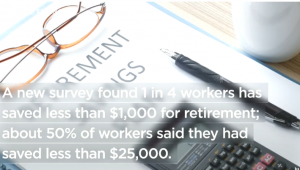May 2018 is behind us and my mom did travel again last month. She went this time to the Alsace region in France.
 Alsace is a historical region in northeastern France on the Rhine River plain. Bordering Germany and Switzerland, it has alternated between German and French control over the centuries and reflects a mix of those cultures. Its capital, Strasbourg, is centered on the Ill River’s Grand Île island, bordered by canals and home to the Gothic Cathédrale Notre-Dame de Strasbourg, with its animated astronomical clock.
Alsace is a historical region in northeastern France on the Rhine River plain. Bordering Germany and Switzerland, it has alternated between German and French control over the centuries and reflects a mix of those cultures. Its capital, Strasbourg, is centered on the Ill River’s Grand Île island, bordered by canals and home to the Gothic Cathédrale Notre-Dame de Strasbourg, with its animated astronomical clock.
Alsace, part of the new French region, Grand Est, is a cultural and historical area of Eastern France. It borders Germany and Switzerland and has alternated between German and French control over the centuries. The result reflects an incredible mix of both cultures. With its villages of brightly-painted, steep-roofed, half-timbered houses, Alsace certainly feels Germanic. The capital of the region is Strasbourg which makes a great base for exploring the area.
If you want to explore what this region has to offer, read the article of Adriana about the three fairytale villages in Alsace.
What else did caught my attention in May 2018 ?
What was new in May 2018 ?
An article in Yahoo Finance did catch my attention. “What Happens if We All Run Out of Money for Retirement?”
If you’re afraid you haven’t saved enough for a secure retirement, you’re not alone.

Americans are increasingly anxious about acquiring the financial resources and savings necessary for a solid retirement foundation. In fact, a 2016 survey of more than 3,200 Americans from the financial firm Allianz found that more than 60 percent of baby boomers fear running out of their savings more than death. So, chances are you’re wondering what could happen if the so-called retirement crisis, in which people no longer have the financial capacity to support themselves, comes to fruition in the future. How will the country address Americans outliving their retirement savings and what might retirement look like in years to come?
The 2017 Annual Transamerica Retirement Survey of 6,372 American employees over the age of 18 found that 57 percent of Generation X respondents and 55 percent of baby boomers cite outliving their savings and investments as one of their greatest retirement fears. According to the survey, 47 percent of millennials have similar concerns. The report also found that baby boomers have saved an estimated median of $164,000 in all household retirement accounts, Gen X has saved an estimated median of $72,000 and millennials have saved an estimated median of $37,000. Conventional wisdom suggests that retirees have $1 million in their bank account when they retire, but many experts have suggested that amount is not enough. Why? If you assume you withdraw 4 percent of your retirement savings every year, which is what most experts suggest, and you adjust for inflation, you would have around $40,000 to live on annually. While an adequate amount to save each year hinges on the individual and his or her lifestyle, to live comfortably, you’ll likely want to aim for more than $1 million in savings.
Many professionals tasked with helping future retirees are pessimistic about how everyone will fare as a group. “Pensions are all but extinct, Social Security will be poorly funded for future generations and the gig economy has moved workers away from W-2 employment where retirement savings plans like 401(k)s aren’t offered,” says Jadon Newman, founder and CEO of Noble Capital, an investment firm in Austin, Texas.
“The burden of caring for retirees will primarily fall on public assistance and government entitlement programs. The cost of long-term care for future retirees will put substantial, additional pressure on the federal and state governments to rein in costs,” says Kevin Fields, a financial planner who owns Fields Financial Planning in Westerville, Ohio.
It won’t just be a crisis where a lot of people are hurting on an individual level; eventually, the retirement crisis will impact the nation’s economy, Fields says. Fields predicts that the health care system will be significantly strained to care for retirees with chronic illnesses. He also predicts that family members will be required to provide an even larger share of long-term care. “The economic impact could be severe, as health care costs spiral out of control and family members are forced to leave the workforce in even larger numbers to provide care,” Fields says.
The key question will be :” Are your preparing for your retirement?”. We try to build an additional cash flow machine in my mom’s portfolio.
Now you can read our Dividend & Options Income May 2018 Report Out for my mom’s portfolio.
Dividends & Options received in May 2018
During the month of May 2018, we received 120,23$ dividend income coming from dividend paying stocks and ETFs. It is below the 290$ monthly goal that we did set as the 2018 objective. Disappointing I know…we did NOT execute any options trades.
Here you find the overview of all dividend payouts during the year 2016, 2017 and first months of 2018.
![]()
The Options Trade Review
During the month of May 2018, we did NOT enter any options trades. So no extra cash flow coming in….
Dividend & Options Income Growth
May 2018 did not add much passive income within my mom’s portfolio. After 5 months we have 49% of our yearly objective and generated 1704,10$. It’s our 3rd month we missed our monthly objective. Anyway we are happy that we are still on track to meet our yearly objective.
![]()
Going forward
We are focussing in the coming months on a standard process that we can implement to find the right trades within the options investing strategy. We did execute 2 trades in May and will find out this week whether they worked or not. Tomorrow we will go 2 days to a course of Options Investing. More knowledge and better preparation for better trades will be VERY IMPORTANT to make more cash flow in the future.
Keep investing in your knowledge and results will follow as you can see during this month.
Thanks for following us on Twitter and Facebook and reading this blog post. We end with a quote as always.
Source : Yahoo Finance

No Comment
You can post first response comment.